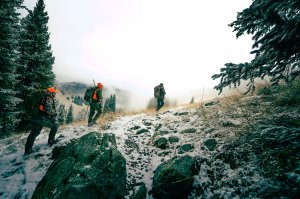Outdoor Life goes bighorn sheep hunting in Montana’s Missouri River Breaks.
To see the record ram taken in this area just last week, CLICK HERE!

Posted on Sep 30, 2009
Outdoor Life goes bighorn sheep hunting in Montana’s Missouri River Breaks.
To see the record ram taken in this area just last week, CLICK HERE!

After field-testing the best gear all year long, we know exactly what should be on your shopping list. Check out the top performing outdoors products and the best deals available.